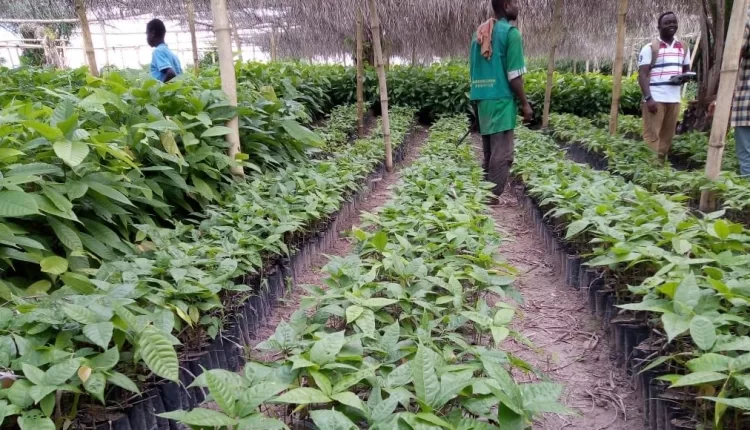Prolonged dry Harmattan conditions have compelled the Ghana Cocoa Board to suspend its planned handing over of thousands of newly rehabilitated cocoa farms, a source at the regulator has revealed to Cocoa Post.
In a speech read for the Chief Executive, Joseph Boahen Aidoo, in February, the board announced its intention to deliver some 19,627 rehabilitated cocoa farms covering an area of 18,110.94 hectares to the beneficiary cocoa farmers.
However, according to the source, due to the telling effect of the prevailing Harmattan condition on some of the farms, the board would temporarily withhold the handover until further notice.
Many farms have seen cocoa seedlings and young trees succumb to the prolonged dry weather of the Harmattan season.
The Harmattan is a dry, dusty wind that blows from the Sahara desert to the Gulf of Guinea and the West African coast. Its impact is strongest from late November to mid-March.
According to the source, the board plans to carry out a final round of maintenance weeding on farms earmarked for handover from next month through May.
“That will also allow us to undertake refilling of those farms with disease-resistant hybrid cocoa seedlings where necessary,” the official indicated.
The contact further explained that handing over rehabilitated farms with the full complement of 1100 cocoa trees is the ideal situation.
However, they said there is always room for continuous seedling refilling, a situation that pertains even to older farms.
Reacting to Cocoa Post’s recent article on some farmers’ unreadiness to take over management of their rehabilitated farms, the Cocobod insider assured the beneficiary farmers of continuous technical support to ensure their farms flourish.
So far, Cocobod says it has successfully rehabilitated some 67,385.43 hectares out of 156,400 hectares of CSSVD outbreak farms targeted for the National Cocoa Rehabilitation Programme.
The programme remains one of the largest interventions in Ghana’s cocoa sector, and it is hoped to rejuvenate the country’s diseased and unproductive cocoa tree stock.
In a Cocoa Post feature published last month, it was revealed that more than 590,000 hectares of Ghana’s cocoa farms have been infected by the deadly Cocoa Swollen Shoot Virus Disease (CSSVD).
According to the Cocoa Research Institute of Ghana (CRIG), CSSVD-infected trees will experience a yield reduction in the first two years and die by the third year.
The West African country, currently the world’s second-largest cocoa producer, faces an unprecedented decline in annual crop production, feeding into a global scarcity and driving record prices.
- Illegal Mining Threatening Ghana’s $230M Cocoa Rehabilitation - April 10, 2024
- Ghana Raises Cocoa Farmgate Price by 58.26% to GHC2,070 per bag - April 5, 2024
- New Standard for Measuring Cocoa Household Income Launched - April 5, 2024
